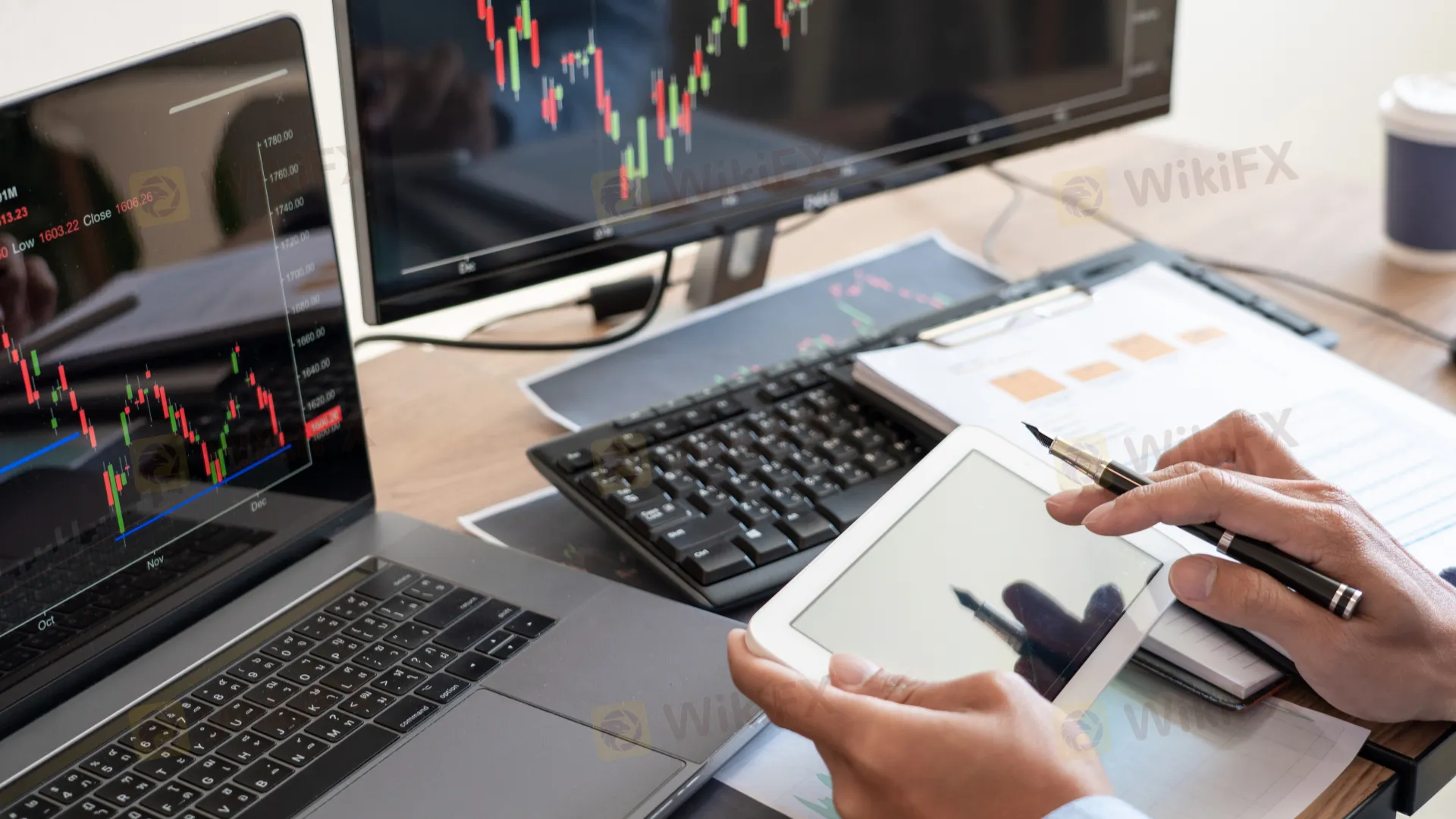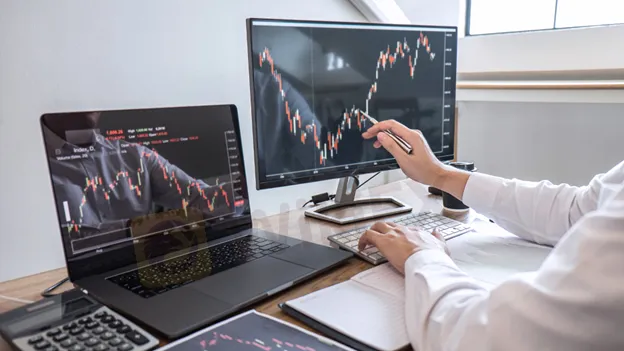简体中文
繁體中文
English
Pусский
日本語
ภาษาไทย
Tiếng Việt
Bahasa Indonesia
Español
हिन्दी
Filippiiniläinen
Français
Deutsch
Português
Türkçe
한국어
العربية
10 Hidden Secrets of the Forex Trading Industry
Abstract:Uncover 10 hidden secrets of the forex trading industry, from the myths of day trading to the truths about leverage and hidden costs. Trade smarter today.

The average trader is often lost in a confusing maze of information from blogs, forums, broker websites, books, courses, and videos. This abundance of resources includes both valuable and misleading content, making it difficult for aspiring traders to discern what is beneficial. Even professional traders with thousands of hours of experience can struggle to differentiate the good from the bad. As a beginner or intermediate trader, it's crucial to develop a mindset that filters and questions the information you receive. This journey requires critical thinking, skepticism, and a constant willingness to learn and adapt. Here are ten secrets that the trading industry often keeps hidden from you.
1. Forex Isn't the Only Market Professionals Trade
The Forex (FX) market is enormous, with billions of dollars traded daily. While it can be lucrative, it can also lead to significant losses if you're not well-versed in its dynamics. Many professional traders diversify their portfolios beyond Forex, trading in commodities, indices, and even individual stocks. This diversification helps mitigate risk and opens up more trading opportunities. For instance, trading commodities like gold or crude oil, stock indices such as the S&P 500 or the Nikkei 225, and individual stocks on various global exchanges allows traders to leverage different market conditions and economic events. By broadening your market view, you can take advantage of a wider range of trading opportunities and reduce your reliance on a single market's performance.
2. The Truth About Leverage
Brokers often encourage high leverage in Forex trading because it boosts their profit margins. However, high leverage can be extremely dangerous, leading to significant losses if the market moves against you. Sensible leverage levels are around 100:1 or 200:1, but anything higher can be risky. Understanding the appropriate use of leverage is critical to long-term success in trading. High leverage magnifies both gains and losses and while the prospect of significant profits can be enticing, the potential for devastating losses is equally substantial. For example, during the Swiss Bank crisis in 2015, many traders with high-leverage positions experienced catastrophic losses. Therefore, always approach leverage with caution and prioritize risk management to safeguard your trading capital.
3. Broaden Your Market View
Successful traders don't limit themselves to one market. In addition to Forex, they trade commodities like gold, stock indices such as the S&P 500, and individual stocks across global exchanges. Broaden your market view to capitalize on various opportunities and reduce the risk associated with focusing on a single market. This approach allows you to navigate different economic cycles and market conditions effectively. For instance, during periods of economic uncertainty, commodities like gold often perform well as safe-haven assets. Conversely, in times of economic growth, stock indices, and individual stocks may offer more lucrative opportunities. By keeping an eye on multiple markets, you can adapt your trading strategies to suit different market environments and enhance your overall profitability.
4. Day Trading Isn't What It Seems
Contrary to popular belief, day trading is not the hallmark of professional trading. The industry's portrayal of day traders as individuals making quick trades and living luxurious lifestyles is often misleading. Most successful traders focus on higher time frames, such as daily charts, and adopt swing or position trading strategies. This approach reduces the noise and randomness of shorter time frames and allows for more substantial gains over time. Day trading can lead to overtrading, increased transaction costs, and emotional stress, making it difficult to achieve consistent profitability. Instead, professional traders look for quality setups on higher time frames, allowing trades to develop over days or weeks. This method not only reduces stress but also increases the likelihood of capturing significant market moves.
5. Hidden Costs: Commissions, Spreads, and Swaps
Every trade you make incurs costs in the form of spreads, commissions, and overnight swaps. For day traders, these costs can quickly add up and erode profits. Trading less frequently and focusing on higher time frames can help minimize these hidden costs, ultimately improving your bottom line. Understanding the true cost of trading is essential for effective money management. For example, a trader making 100 trades a month might incur substantial costs that eat into their profits. By reducing the frequency of trades and holding positions longer, you can significantly lower your transaction costs and increase your net returns. Always be mindful of these hidden costs and factor them into your trading strategy to ensure sustainable profitability.

6. The Myth of ECN Brokers
Many brokers market themselves as ECN (Electronic Communication Network) brokers, claiming to offer direct access to the market without intermediaries. In reality, most brokers are market makers, and your trades may not always reach the market directly. It's essential to choose brokers based on their regulatory status, customer service, and overall reputation rather than misleading marketing terms. The term “ECN” is often used to create an illusion of transparency and fairness, but the actual trading conditions may not differ significantly from traditional brokers. Therefore, when selecting a broker, prioritize factors such as regulatory oversight, trading platform reliability, and customer support. Conduct thorough research and read reviews to ensure you choose a broker that aligns with your trading needs and offers a trustworthy service.
7. Market Makers Aren't Always Bad
While market makers take the opposite side of your trades, they are not inherently bad. Banks, institutions, and brokers often act as market makers. Reputable market makers can provide better prices, faster execution, and more trading opportunities, especially for small lot sizes. The key is to choose a broker with a solid reputation and good trading conditions. Market makers play a crucial role in providing liquidity and ensuring smooth market operations. By understanding their function, you can better appreciate their contribution to the trading ecosystem. Additionally, market makers often offer more flexible trading conditions, such as lower minimum trade sizes and tighter spreads. Evaluate your broker's performance based on their execution quality, pricing, and overall service rather than their market-making status.
8. Trading Is Simple, But Not Easy
Trading might seem simple once you have a solid plan and strategy, but it's far from easy. Managing emotions, maintaining discipline, and dealing with the psychological aspects of trading are significant challenges. Success in trading requires continuous learning, practice, and experience, often involving thousands of hours of screen time. The emotional roller coaster of trading can lead to impulsive decisions and significant losses if not managed properly. Developing a strong mental framework and adhering to a well-defined trading plan are essential for overcoming these challenges. Remember, even the best trading strategies require consistent execution and discipline. Regularly review and refine your approach to ensure it remains effective in changing market conditions.
9. Trading Robots and EAs Usually Don't Work
Automated trading systems and Expert Advisors (EAs) rarely deliver consistent profits. Many are based on poor money management techniques and can lead to significant losses. The marketing around these tools is often deceptive. If you choose to use an EA, maintain full control and monitor it closely to avoid substantial drawdowns. While the idea of a “set-and-forget” trading system is appealing, the reality is that markets are dynamic and constantly changing. Automated systems may not adapt well to new market conditions, leading to poor performance. Instead, focus on developing your own trading skills and strategies, which can be adjusted and refined based on real-time market analysis and your evolving understanding of market dynamics.
10. Beware of Shortcuts
The trading industry is filled with courses and systems promising quick riches. However, there are no shortcuts to success. Quality education and experience are invaluable, but no course or mentor can guarantee profitability. It's essential to approach trading with a realistic mindset and a commitment to continuous learning and personal growth. The allure of quick profits can lead traders to fall for scams and overpriced courses that offer little real value. Instead, invest in your education through reputable sources and focus on gaining practical experience. Join trading communities, participate in forums, and seek mentorship from experienced traders. By building a strong foundation of knowledge and experience, you can develop the skills necessary for long-term success in trading.
Conclusion
The trading industry often presents an idealized version of what it means to be a successful trader, masking the realities and challenges involved. By being aware of these hidden truths, you can approach trading with a more informed and realistic perspective. Develop your own methods for filtering information, choose your mentors and resources carefully, and remain committed to continuous learning and disciplined trading practices. Trading is a journey that requires patience, resilience, and a willingness to adapt. Stay open-minded, question the information you receive, and always prioritize your long-term success over short-term gains. By doing so, you'll be better equipped to navigate the complex and often deceptive world of trading, ultimately increasing your chances of achieving consistent profitability and financial independence.

Disclaimer:
The views in this article only represent the author's personal views, and do not constitute investment advice on this platform. This platform does not guarantee the accuracy, completeness and timeliness of the information in the article, and will not be liable for any loss caused by the use of or reliance on the information in the article.
Read more

RM1.29 Million Lost in ‘C Baird VIP’ WhatsApp Scam
A 43-year-old company auditor and subcontractor in Malaysia became the latest victim of an elaborate investment scam after losing RM1.29 million to a fraudulent scheme promoted via WhatsApp.

U.S. March ISM Manufacturing PMI Released
The U.S. March ISM Manufacturing PMI data shows that manufacturing has contracted for the first time, and investors should pay attention to future changes and impacts on the sector.

Breaking News! Forex Inflows Surge to $17 Billion
Nigeria's foreign exchange inflows saw a significant increase in the fourth quarter of 2024, reaching $17.39 billion. This growth reflects strong foreign investments and export revenues, bringing new confidence to the market.

Should You Beware of Forex Trading Gurus?
Know the reality behind forex trading gurus, examining their deceptive tactics, inflated promises, and the risks associated with trusting them for financial advice.
WikiFX Broker
Latest News
Exposing the Top 5 Scam Brokers of March 2025: A Closer Look by WikiFX
Gold Prices Climb Again – Have Investors Seized the Opportunity?
Webull Launches SMSF Investment Platform with Zero Fees
Australian Regulator Warns of Money Laundering and Fraud Risks in Crypto ATMs
FCA Warns Against 10 Unlicensed or Clone Firms
CySEC Warns Against 14 Unlicensed Investment Websites
Top Currency Pairs to Watch for Profit This Week - March 31, 2025
Will natural disasters have an impact on the forex market?
Philippines Deports 29 Indonesians Linked to Online Scam Syndicate in Manila
The Withdrawal Trap: How Scam Brokers Lure Victims into Paying More
Currency Calculator







